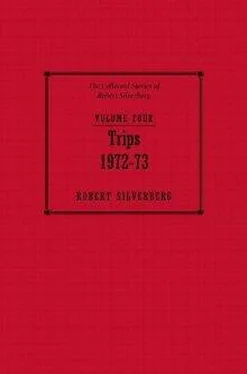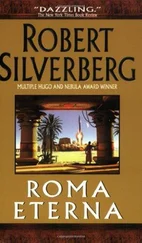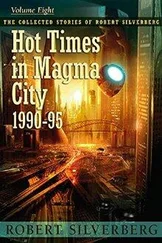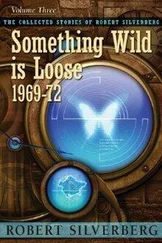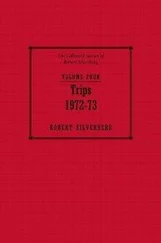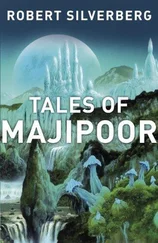Robert Silverberg - Born with the Dead
Здесь есть возможность читать онлайн «Robert Silverberg - Born with the Dead» весь текст электронной книги совершенно бесплатно (целиком полную версию без сокращений). В некоторых случаях можно слушать аудио, скачать через торрент в формате fb2 и присутствует краткое содержание. Год выпуска: 2009, ISBN: 2009, Издательство: Subterranean Press, Жанр: Фантастика и фэнтези, на английском языке. Описание произведения, (предисловие) а так же отзывы посетителей доступны на портале библиотеки ЛибКат.
- Название:Born with the Dead
- Автор:
- Издательство:Subterranean Press
- Жанр:
- Год:2009
- ISBN:978-1-59606-212-2
- Рейтинг книги:5 / 5. Голосов: 1
-
Избранное:Добавить в избранное
- Отзывы:
-
Ваша оценка:
- 100
- 1
- 2
- 3
- 4
- 5
Born with the Dead: краткое содержание, описание и аннотация
Предлагаем к чтению аннотацию, описание, краткое содержание или предисловие (зависит от того, что написал сам автор книги «Born with the Dead»). Если вы не нашли необходимую информацию о книге — напишите в комментариях, мы постараемся отыскать её.
Born with the Dead — читать онлайн бесплатно полную книгу (весь текст) целиком
Ниже представлен текст книги, разбитый по страницам. Система сохранения места последней прочитанной страницы, позволяет с удобством читать онлайн бесплатно книгу «Born with the Dead», без необходимости каждый раз заново искать на чём Вы остановились. Поставьте закладку, и сможете в любой момент перейти на страницу, на которой закончили чтение.
Интервал:
Закладка:
Sweating, saying little, the hunters move in single file, first the porters with the guns and supplies, then Gracchus, Zacharias, Sybille, Nerita constantly clicking her camera, and Mortimer. Patches of white cloud drift slowly across the immense arch of the sky. The grass is lush and thick, for the short rains were unusually heavy in December. Small animals scurry through it, visible only in quick flashes, squirrels and jackals and guinea-fowl. Now and then larger creatures can be seen: three haughty ostriches, a pair of snuffling hyenas, a band of Thomson gazelles flowing like a tawny river across the plain. Yesterday Sybille spied two wart hogs, some giraffes, and a serval, an elegant big-eared wildcat that slithered along like a miniature cheetah. None of these beasts may be hunted, but only those special ones that the operators of the preserve have introduced for the special needs of their clients; anything considered native African wildlife, which is to say anything that was living here before the deads leased this tract from the Masai, is protected by government decree. The Masai themselves are allowed to do some lion-hunting, since this is their reservation, but there are so few Masai left that they can do little harm. Yesterday, after the wart hogs and before the giraffes, Sybille saw her first Masai, five lean, handsome, long-bodied men, naked under skimpy red robes, drifting silently through the bush, pausing frequently to stand thoughtfully on one leg, propped against their spears. At close range they were less handsome—toothless, fly-specked, herniated. They offered to sell their spears and their beaded collars for a few shillings, but the safarigoers had already stocked up on Masai artifacts in Nairobi’s curio shops, at astonishingly higher prices.
All through the morning they stalk the quagga, Gracchus pointing out hoofprints here, fresh dung there. It is Zacharias who has asked to shoot a quagga. “How can you tell we’re not following a zebra?” he asks peevishly.
Gracchus winks. “Trust me. We’ll find zebras up ahead too. But you’ll get your quagga. I guarantee it.”
Ngiri, the head porter, turns and grins. “Piga guagga m’uzuri bwana,” he says to Zacharias, and winks also, and then—Sybille sees it plainly—his jovial confident smile fades as though he has had the courage to sustain it only for an instant, and a veil of dread covers his dark glossy face.
“What did he say?” Zacharias asks.
“That you’ll shoot a fine quagga,” Gracchus replies.
Quaggas. The last wild one was killed about 1870, leaving only three in the world, all females, in European zoos. The Boers had hunted them to the edge of extinction in order to feed their tender meat to Hottentot slaves and to make from their striped hides sacks for Boer grain, leather veldschoen for Boer feet. The quagga of the London zoo died in 1872, that in Berlin in 1875, the Amsterdam quagga in 1883, and none was seen alive again until the artificial revival of the species through breedback selection and genetic manipulation in 1990, when this hunting preserve was opened to a limited and special clientele.
It is nearly noon, now, and not a shot has been fired all morning. The animals have begun heading for cover; they will not emerge until the shadows lengthen. Time to halt, pitch camp, break out the beer and sandwiches, tell tall tales of harrowing adventures with maddened buffaloes and edgy elephants. But not quite yet. The marchers come over a low hill and see, in the long sloping hollow beyond, a flock of ostriches and several hundred grazing zebras. As the humans appear, the ostriches begin slowly and warily to move off, but the zebras, altogether unafraid, continue to graze. Ngiri points and says, “Piga quagga, bwana.”
“Just a bunch of zebras,” Zacharias says.
Gracchus shakes his head. “No. Listen. You hear the sound?”
At first no one perceives anything unusual. But then, yes, Sybille hears it: a shrill barking neigh, very strange, a sound out of lost time, the cry of some beast she has never known. It is a song of the dead. Nerita hears it too, and Mortimer, and finally Zacharias. Gracchus nods toward the far side of the hollow. There, among the zebras, are half a dozen animals that might almost be zebras, but are not—unfinished zebras, striped only on their heads and foreparts; the rest of their bodies are yellowish brown, their legs are white, their manes are dark-brown with pale stripes. Their coats sparkle like mica in the sunshine. Now and again they lift their heads, emit that weird percussive whistling snort, and bend to the grass again. Quaggas. Strays out of the past, relicts, rekindled specters. Gracchus signals and the party fans out along the peak of the hill. Ngiri hands Zacharias his colossal gun. Zacharias kneels, sights.
“No hurry,” Gracchus murmurs. “We have all afternoon.”
“Do I seem to be hurrying?” Zacharias asks. The zebras now block the little group of quaggas from his view, almost as if by design. He must not shoot a zebra, of course, or there will be trouble with the rangers. Minutes go by. Then the screen of zebras abruptly parts and Zacharias squeezes his trigger. There is a vast explosion; zebras bolt in ten directions, so that the eye is bombarded with dizzying stroboscopic waves of black and white; when the convulsive confusion passes, one of the quaggas is lying on its side, alone in the field, having made the transition across the interface. Sybille regards it calmly. Death once dismayed her, death of any kind, but no longer.
“Piga m’uzuri!” the porters cry exultantly.
“Kufa,” Gracchus says. “Dead. A neat shot. You have your trophy.”
Ngiri is quick with the skinning-knife. That night, camping below Kilimanjaro’s broad flank, they dine on roast quagga, deads and porters alike. The meat is juicy, robust, faintly tangy.
Late the following afternoon, as they pass through cooler stream-broken country thick with tall, scrubby gray-green vase-shaped trees, they come upon a monstrosity, a shaggy shambling thing twelve or fifteen feet high, standing upright on ponderous hind legs and balancing itself on an incredibly thick, heavy tail. It leans against a tree, pulling at its top branches with long forelimbs that are tipped with ferocious claws like a row of sickles; it munches voraciously on leaves and twigs. Briefly it notices them, and looks around, studying them with small stupid yellow eyes; then it returns to its meal.
“A rarity,” Gracchus says. “I know hunters who have been all over this park without ever running into one. Have you ever seen anything so ugly?”
“What is it?” Sybille asks.
“Megatherium. Giant ground sloth. South American, really, but we weren’t fussy about geography when we were stocking this place. We have only four of them, and it costs God knows how many thousands of dollars to shoot one. Nobody’s signed up for a ground sloth yet. I doubt anyone will.”
Sybille wonders where the beast might be vulnerable to a bullet: surely not in its dim peanut-sized brain. She wonders, too, what sort of sportsman would find pleasure in killing such a thing. For a while they watch as the sluggish monster tears the tree apart. Then they move on.
Gracchus shows them another prodigy at sundown: a pale dome, like some huge melon, nestling in a mound of dense grass beside a stream. “Ostrich egg?” Mortimer guesses.
“Close. Very close. It’s a moa egg. World’s biggest bird. From New Zealand, extinct since about the eighteenth century.”
Nerita crouches and lightly taps the egg. “What an omelet we could make!”
“There’s enough there to feed seventy-five of us,” Gracchus says. “Two gallons of fluid, easy. But of course we mustn’t meddle with it. Natural increase is very important in keeping this park stocked.”
Читать дальшеИнтервал:
Закладка:
Похожие книги на «Born with the Dead»
Представляем Вашему вниманию похожие книги на «Born with the Dead» списком для выбора. Мы отобрали схожую по названию и смыслу литературу в надежде предоставить читателям больше вариантов отыскать новые, интересные, ещё непрочитанные произведения.
Обсуждение, отзывы о книге «Born with the Dead» и просто собственные мнения читателей. Оставьте ваши комментарии, напишите, что Вы думаете о произведении, его смысле или главных героях. Укажите что конкретно понравилось, а что нет, и почему Вы так считаете.
